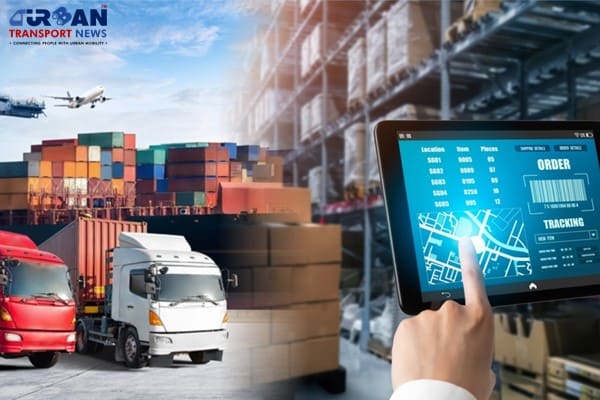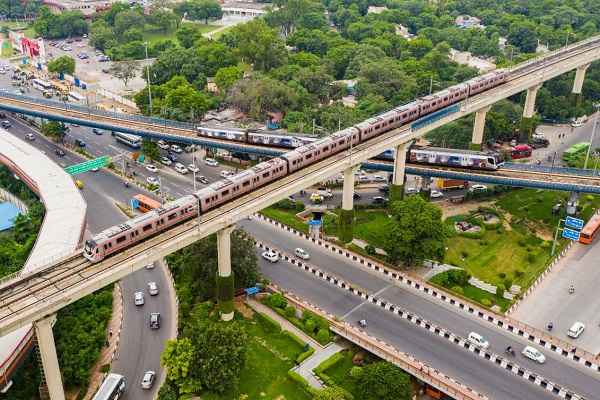 India launched Bharat Taxi Service as First Cooperative-Owned Digital Mobility Platform
India launched Bharat Taxi Service as First Cooperative-Owned Digital Mobility Platform India places World’s First Live Commercial Order for Hyperloop-Based Cargo Logistics
India places World’s First Live Commercial Order for Hyperloop-Based Cargo Logistics How Weigh-in-Motion Systems Are Revolutionizing Freight Safety
How Weigh-in-Motion Systems Are Revolutionizing Freight Safety Women Powering India’s Electric Mobility Revolution
Women Powering India’s Electric Mobility Revolution Rail Chamber Launched to Strengthen India’s Global Railway Leadership
Rail Chamber Launched to Strengthen India’s Global Railway Leadership Wage and Hour Enforcement Under the Massachusetts Wage Act and Connecticut Labor Standards
Wage and Hour Enforcement Under the Massachusetts Wage Act and Connecticut Labor Standards MRT‑7: Manila’s Northern Metro Lifeline on the Horizon
MRT‑7: Manila’s Northern Metro Lifeline on the Horizon Delhi unveils ambitious Urban Mobility Vision: Luxury Metro Coaches, New Tunnels and Pod Taxi
Delhi unveils ambitious Urban Mobility Vision: Luxury Metro Coaches, New Tunnels and Pod Taxi Qatar approves Saudi Rail Link Agreement, Accelerating Gulf Railway Vision 2030
Qatar approves Saudi Rail Link Agreement, Accelerating Gulf Railway Vision 2030 UP Govt plans to introduce Water Metro services in Ayodhya, Varanasi & Prayagraj
UP Govt plans to introduce Water Metro services in Ayodhya, Varanasi & Prayagraj
Tackling Supply Chain Blind Spots with Machine Learning

Even the most famous supply chains suffer from blind spots—data voids, unpredictable disruptions, and untracked events. These blind spots cause costly delays and barely run supply chains.
Machine learning (ML) is a wildly transformative technology that helps reveal these 'hidden' weak points. Also, it provides sound decisions along the supply chain for easier and much quicker deliveries.
Why Blind Spots Occur
Real-time data is not seen, or incredibly complex patterns across logistics networks cannot be read. These can come from old tracking systems.
The consequences of using an inefficient tracking system are delayed delivery, overpricing, and unhappy customers.
Benefits of Using Machine Learning
Machine learning offers a lot benefits as it regards supply chain. Here is why machine learning is essential for tackling supply chain blind spots.
Easy data analysis
Machine learning solves many issues by analyzing several terabytes of data from numerous sources, including GPS trackers, IoT sensors, weather feeds, and traffic data. Unlike traditional systems that do not have static and adaptable rules, ML models learn and adapt.
They locate anomalies in the shipments' routes, predict possible disruptions, and even develop proactive steps before problems escalate.
Detects defective ports
An ML model could easily detect a sudden absence of news about a port as a signal that a port is undergoing delayed shipments related to labor strikes by looking at real-time shipment data patterns and news sources. After that, it can be suggested that freight be rerouted from an alternative terminal to reduce downtime. As more and more incidents arrive, these models become smart, learning from every incident and becoming smarter every time.
Visibility
ML also makes it possible to bring this visibility down to the SKU. Now, companies can track what individual products are being purchased, forecast supply requirements, and optimize warehouse operations based on actual user patterns.
Conclusion
This domain shows the power of this with solutions like SafeCube.ai. They integrate real-time data and intelligent analytics to enable businesses to transform reactionary supply chains into proactive ecosystems.
The outcome is simple: fewer surprises, improved efficiency, and enhanced market leadership. The more complex global supply chains become, the more strategic and less technologically embracing machine learning becomes.
Visit safecube.ai to learn more.





